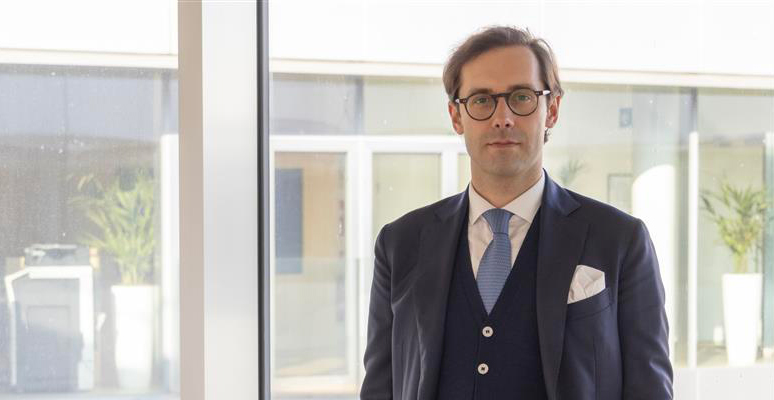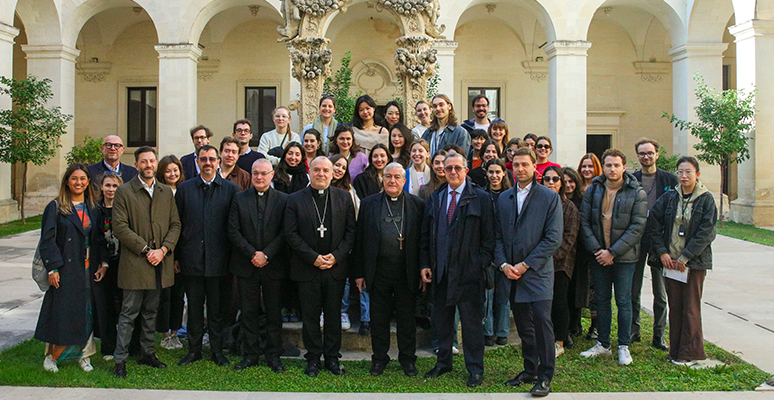Fundraising in Paestum, the winning Bet of a MAMA alumna
Having an enormous artistic and historical heritage to promote, it would simply be one of the most resilient national clichés and unrealized hopes if something hadn’t actually started to happen. A new culture in heritage management is finally making its way into our country. Thanks also to virtuous locations such as the Paestum Archaeological Park and its innovative projects to guarantee the economic sustainability of the structure. This year it is in the hands of Federica Zoe Ferrai Cagidiaco, MAMA - Master in Arts Management and Administration alumnus, and winner of the call for tenders for fundraising activities. We had a chance to talk to her about the new professional profiles that manage cultural heritage and about the importance of a targeted education.
Winning the fundraising campaign for the Paestum Archaeological Park is the crowning of a long professional and educational career. Tell us about it starting from the end, from the call for tender.
It might sound strange but I found out about it through social media, on the Park’s Facebook page. Given my specific experience at that site and the passion I have for it all, I couldn’t pass it up. It was a relatively quick procedure: within two months they published the list of interested parties and then the winner. The project involves managing the whole fundraising campaign for the Paestum Archaeological Park for a year, starting June 2017. This means not only gathering funds in the typical manner used in the arts/museums field, but also a series of communication and marketing activities, to be held in synergy with their internal structures and functions.
Let’s take a step back: Paestum is also where you did your MAMA internship. Was that the beginning of your involvement with the park management? How did it all start?
I arrived in Paestum in July 2016. During my internship I worked precisely on fundraising, an activity that had never been carried out at that institution. The director wanted to do a trial run giving the reins to an intern, and my MAMA experience was the right qualification. The whole experience was quite a surprise for me: I didn’t know the place, I had never worked in public administration. I obviously ran into the constraints and procedures of a public institution, but I also found a very involved, available and open director who had just recently arrived at the helm of the institution, one of the great “results” of the Franceschini reform of 2015. You could feel that everyone there wanted to do things and make changes. It is proof that leadership can make a difference even within the public administration.
I made a few specific action proposals, and the director gave me free rein. We met periodically to take stock of the situation and review the progress of the project, but I felt that he trusted me and my work. On top of it all, the site was fascinating, one of the most magical places I have ever seen. In the end I got on so well there that I found a way to go back.
An unavoidable question for a MAMA alumna: how significant was the choice of this program for your following professional choices?
For this choice the MAMA was essential. My background was in a completely different field, a freelance in communications but in completely different sectors. My education in the humanities and my love for culture pushed me towards the Master’s. It meant strengthening the skills I already had, acquiring new ones and aiming them at a field I had passion for. When I see the students at the presentations of new editions of the Master’s I tell them that they’re about to face a demanding experience, but right after it they’ll immediately grasp the value of the cultural and professional investment they made.
What in particular did the MAMA add to your education in the humanities, which most participants have?
Basically the managerial vision, which is lacking in the humanities, but is essential to complete the professional tool set so as to be efficient in handling the cultural and artistic heritage. MAMA helped me discover a potential I didn’t know I had. It is an experience that broadens your horizons, the mental ones even before the professional ones.
Expanding on the topic, do you think that to manage and develop our country’s cultural and artistic heritage it would be enough to re-qualify and exploit the existing professional roles or do we need whole new ones? Can a program such as the MAMA work in both directions?
This was the question of my thesis, as well. While we have to consider the constraints of public administration such as the dwindling economic resources and the freeze on turnover, which has raised the employees’ age average, there are certainly people who have a great potential, who must be trained so as to grow professionally and innovate the institutions from within. After all, there is already a progressive renewal of skills through requalification of the staff, they are hiring new people and calling in external consultants, and this trend can only continue and expand. Paestum is just one of the first examples of this new type of public administration. After the Franceschini reform and the strong push towards management autonomy for public institutions, the model will surely spread and we will need increasingly more appropriate and specific skills. We just have to be ready and able to seize the opportunities.
SDA Bocconi School of Management
MAMA turns 10: a conversation with new ...

Shaping the Future Leaders of Arts ...



.jpg)
